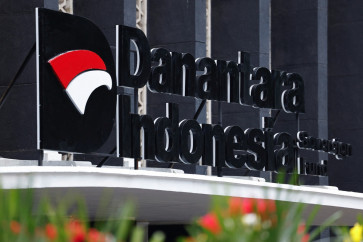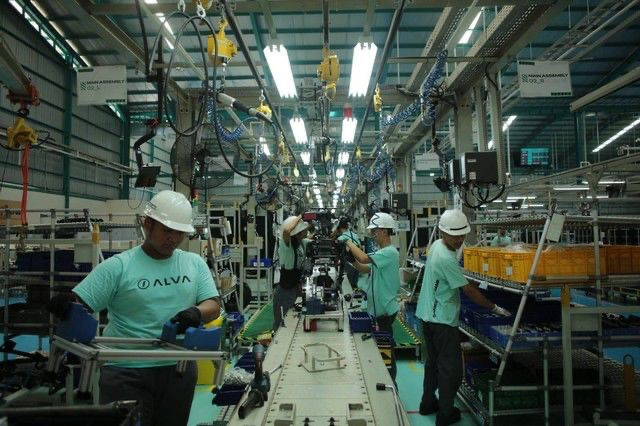Popular Reads
Top Results
Can't find what you're looking for?
View all search resultsPopular Reads
Top Results
Can't find what you're looking for?
View all search resultsImplementation of one-stop service not yet effective: Survey
The centers for one-stop integrated license services (PSTP), as part of the government’s efforts to improve the business climate in the country, have not been fully effective in many local administrations, according to a recent nationwide survey
Change text size
Gift Premium Articles
to Anyone
T
he centers for one-stop integrated license services (PSTP), as part of the government’s efforts to improve the business climate in the country, have not been fully effective in many local administrations, according to a recent nationwide survey.
The managing director of the Center for Public Policy Analysis (CPPA), Edy Priyono, said that 110 regions covering 17 provinces, 82 regencies, and 11 municipalities — or 24 percent out of the total 530 existing local administrations in the country — had not set up the centers, which are aimed at providing quick, accountable and transparent license services.
“A number of local administrations, which already have licensing centers, have yet to handle most of the licenses. This makes them merely a formality to comply with prevailing regulations,” he said on Friday during a discussion about the survey, which was conducted in May by CPPA, along with the Home Ministry and the Asia Foundation.
Edy cited the survey’s results, showing that the existing centers had handled on average only 18 out of 51 licenses for those wishing to do business at the local level, in sectors such as construction, trade and industry.
In addition, the centers’ existence still cannot guarantee the elimination of potential “illegal money” raised from licensing processes. Out of the 420 centers, only 23 percent used banks for license payments, while the rest are taking cash payments.
“Basically, the use of banking services by the PTSP can avert ‘illegal money’ being potentially charged to license applicants,” Edy said.
He added that 16 percent of the centers have yet to separate the front office — designed to handle information and document submissions and selection — from the back office, which processes documents and issues licenses. Such separation could also minimize illegal deals between applicants and license issuers.
Edy said local leaders — governors, regents, or mayors — can play a strategic role to ensure the effectiveness of such centers.
“In places where the centers operate well, we see that local leaders are aware that investment is important to create jobs and alleviate poverty in their regions. In a bid to attract investment, they need excellent licensing services,” he said, citing Palembang, South Sumatra; Cimahi, West Java; and Yogyakarta as examples of regions with well-managed centers.
Bureaucratic and complicated procedures have been one of the major obstacles for undertaking business in Southeast Asia’s largest economy.
The government issued Home Ministry regulations in 2006 and 2008, requiring each local administration to set up a center for a one-stop integrated license service to help boost economic growth through generating higher levels of investment.










